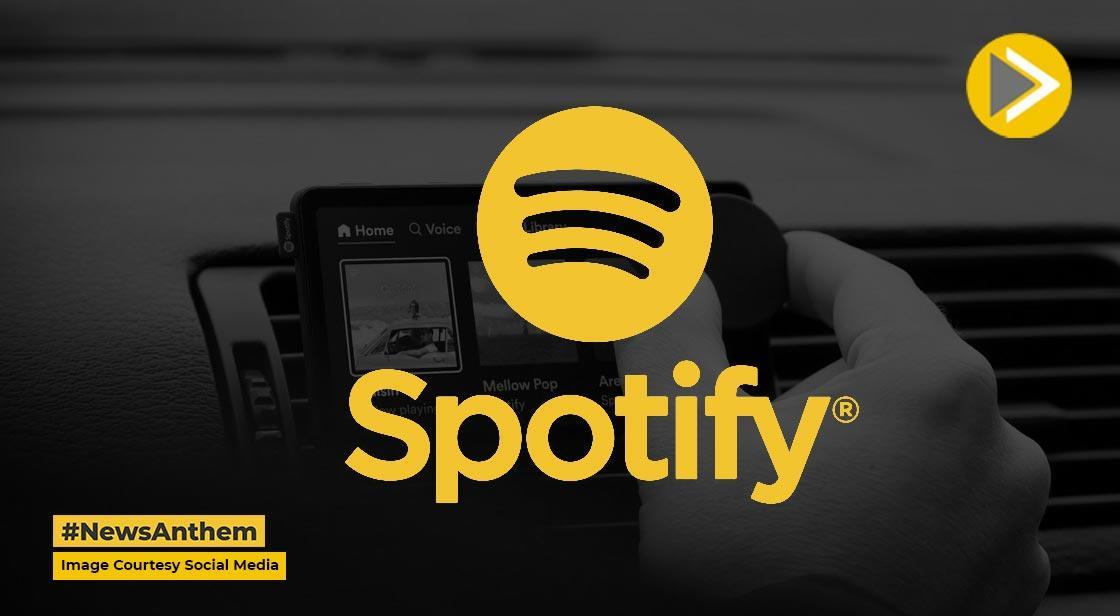Spotify Launches AI Lab with Labels, Pledges “Responsible AI” for Music

News Synopsis
Spotify has announced a significant collaboration with leading record labels — Sony, Universal, Warner, and Merlin — to co-develop new artificial intelligence music products. As debates intensify around AI’s role in music creation and fair compensation for artists, Spotify reaffirmed its commitment to copyright, stating:
“Some voices in the tech industry believe copyright should be abolished. We don’t. Musicians’ rights matter. Copyright is essential,”
This statement underscores Spotify’s intent to embed rights holders at the center of innovation, not treat them as afterthoughts. The move follows criticism over how the platform managed AI-generated content and signals a broader industry push toward shaping responsible AI use in music.
Why Spotify Believes the Industry Must Lead
Avoiding a Wild West of AI in Music
Spotify warned that absent industry leadership, AI innovation might progress elsewhere “without rights, consent, or compensation.” In its announcement, the company said:
“If the music industry doesn’t lead in this moment, AI-powered innovation will happen elsewhere, without rights, consent, or compensation. Together with rights holders, artists, and songwriters, we are making significant investments in AI research and product development.”
This reveals Spotify’s view that it must act now — collaboratively — to steer AI’s impact in the right direction for creators.
Tools That Respect Artist Choice & Control
Spotify’s lab and product teams are already working on generative AI technologies designed to put decision power in creators’ hands. Artists will be able to opt in or out of AI tools, and dictate how their work is used. This is especially critical in an era when AI-generated tracks may replicate styles or musical elements without knowledge or consent.
Current & Past AI Experiments at Spotify
From AI DJ to Generative Playlists
Spotify already offers generative AI features like AI DJ, which uses algorithms to curate playlists, and prompt-based playlist generation. These existing tools hint at how deeper AI integration may evolve.
Revisions to AI Policy and Content Controls
The company recently tightened its AI policy in response to misuse: it cracked down on mass uploads of AI content, reduced duplication, and modified recommendation and search algorithms to make them less vulnerable to manipulation. Additionally, Spotify has committed to adopting the DDEX music labeling standard, which tags tracks for when AI was involved in creation, increasing transparency for listeners and the industry.
Spotify also disclosed that it removed 75 million “spam” AI tracks in the past year — a staggering number given its catalog size — in an effort to strengthen trust and curb abuses.
Principles & Commitments for the New AI System
Spotify has laid out guiding principles for all AI products developed through this collaboration:
-
Partnerships & Upfront Agreements: Tools will be built via direct licensing and agreements, not retroactive forgiveness.
-
Choice in Participation: Artists and rights holders will decide if — and how — they engage with the AI tools.
-
Fair Compensation & New Revenue: Spotify pledges to construct AI tools that generate new, transparent income streams for creators, with proper crediting for contributions.
-
Artist-Fan Connection: The goal is not to replace human artistry, but to enrich it and deepen engagement.
Spotify says it has already started work on the first product directions aligned with these principles.
Challenges, Risks & Industry Context
Trust & Past Criticism
Spotify has in past years faced criticism about ghost or “fake” artists and opaque royalty practices. Wikipedia Some see Spotify’s AI pivot as an attempt to reset its narrative and rebuild trust in the creative community.
Balancing Innovation & Protection
It is not trivial to design AI systems that are both creative and compliant. The tools must respect artist rights and legal constraints, while still offering compelling features. Getting that balance right is a major engineering, legal, and ethical challenge.
Licensing, Legal Pressure & Competition
Record labels are already in talks with AI companies over licensing frameworks and royalty models. To succeed, Spotify’s initiative will have to coexist with wider industry moves and legal frameworks.
Additionally, as other streaming platforms and AI companies explore generative music tools, Spotify’s lab may set benchmarks — but also face competition and scrutiny.
Conclusion
Spotify’s announcement to build a generative AI research lab in partnership with major record labels is a bold attempt to shape the future of AI in music on artist-friendly terms. By affirming that “copyright is essential” and pledging to preserve artist consent, compensation, and creative control, Spotify positions itself as a responsible steward in a time of uncertainty.
Yet the road ahead is steep: building AI that is musically meaningful, legally safe, and economically fair is no small feat. The success of this initiative will hinge on Spotify’s ability to deliver tools that artists want to use — not tools they must endure — and to maintain trust in a rapidly changing music ecosystem.
If executed well, Spotify’s move could set a standard for how AI and creativity intersect — turning innovation from a source of conflict into a collaborative engine for the future of music.
You May Like









